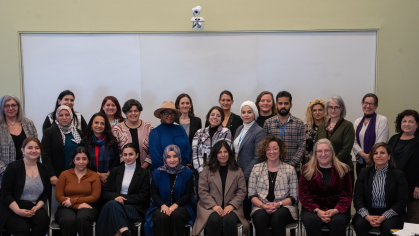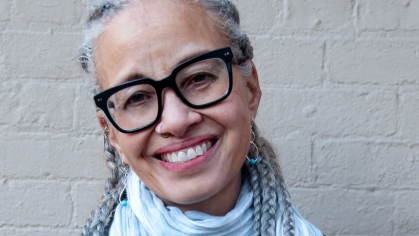Training Session Teaches MSW Students to be LGBTQI+ Affirming with Older Adults
Earlier this year, Rutgers School of Social Work MSW students in the Aging & Health Certificate Program attended a virtual training session to further their knowledge about supporting LGBTQ+ older adults in social work practice. A supplement to their required coursework, students who attended the training acquired skills that are critical to serving the growing aging population in the U.S. Assistant Professor of Teaching and Coordinator for the Aging and Health Certificate Program Lauren Snedeker reflects on the training and its impact on students.
Tell us about the training session our Aging & Health Certificate students attended earlier this year.
In 2020, Governor Murphy signed the LGBTQ+ Senior Bill of Rights NJ S2545 to prevent long-term care facilities from discriminating against their residents (new and long-term) based on sexual orientation, gender identity, gender expression, intersex status, or HIV status. A key part of this legislation requires all long-term care facility workers to be trained in LGBQT+ affirming practices in care. The passage of this legislation encouraged me as the Coordinator of the Aging and Health Certificate to ensure that social work students, on the cusp of graduation, had the opportunity to receive this training and bring this information back to their current internships and eventually to their jobs after they graduate. Generous support from the Henry and Marilyn Taub Foundation allowed me to move forward with a comprehensive training facilitated by LGBT Senior Housing and Care, a key leader in advocating for LGBQT+ rights in New Jersey and educating providers in LGBTQ+ older adult care and housing needs in states across the U.S. With this state-level training, Aging and Health Certificate students are even more prepared to deliver informed care to older adults with unique lived experiences and graduate with state certification for NJ S2545, and are helping the gerontological social work field lead this part of legislation in a meaningful way.
Why was it important for these students to attend the training?
Attending this training is critical for students and their future practice with older adults and their communities. As I share in all the classes and supervisory meetings I lead, each older person brings with them a unique lived experience. They are the experts on their lived experiences but we must be able to co-create a space to ensure we are providing support in a safe and meaningful way. This goes for any aged client.
What do you hope the students gained from attending the training?
During this training, students were exposed to more history about LGBTQ+ movements and lived experiences of individuals they may be (or are currently) working with that have been impacted by various historical events like Stonewall. Students also were able to explore their own knowledge about experiences in the LGBQT+ older adult community and examine these through an intersectional lens.
What would you tell a social work student who is considering a career in aging?
I would tell them that first, we are all aging! Second, that should they like to focus more on work with older adults or in healthcare settings of any kind, learning more about experiences that may occur during later life, or the ways that early experiences can carry throughout life, is critically important to direct and policy-based social work. Every time of life is important and presents opportunities and challenges for social workers.



